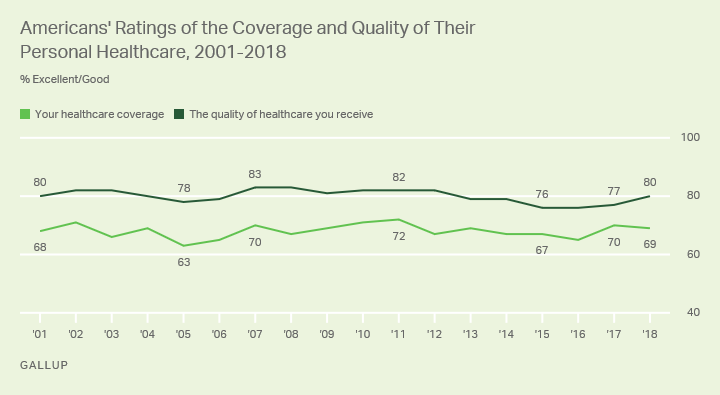To those disingenuously wondering how it gets paid for it is really quite simple.
Have the political courage to:
Tax the donor class.
Be it individuals or corporations
Slash welfare designated to the weapons industry
Eliminate the health insurance industry.
/////
for 3 examples
Payment for massive new social programs is ALWAYS a huge obstacle to their passing. It's not something that can simply be ignored. Some do latch onto this obstacle as a convenient excuse. Others, myself included, have fiscal responsibility as one of their most important political issues. Creating new benefits is fine if it is done in a responsible manner.
The next point is, as you say, "have the political courage to" institute various measures. This is easier said than done. So many politicians on both sides of the aisle are beholden to wealthy donors. With the rise of primarying, even those with safe districts are afraid of well funded challengers who are more amenable to the wishes of their patrons. Realistic attempts at funding a program like this will likely need to find revenue sources acceptable to wealthy donors.
Now to your ideas on how to raise the money. Weapons funding seems large because it's a large part of Congress' discretionary spending (about half). Compared to the cost of social programs, it's tiny. Total defense spending in 2018 was about $623 billion. Social security, Medicaid, and Medicare accounted for $1.953 trillion (more than 3 times all defense spending). Considering the stuff you're talking about cutting would be things like unnecessary weapons system, you're talking about only a fraction of total defense spending. This is the government equivalent of looking for change in the couch cushions.
Then there's taxing the donor class. While there's certainly some room here (e.g. rolling back the Trump tax changes), I caution against a dogmatic belief that the wealthy will just bear the increased tax burden if their taxes are increased. The problem is that wealth and power go hand in hand. The wealthy are the most able to bear tax burdens but they're also the ones with the greatest ability to evade taxes (e.g. find loopholes, move money around, etc) or else pass those burdens off to others.
For example, say you increase the corporate tax rate. Will corporations just slash dividends to account for this? Of course not. Those running the corporations are often judged on dividends and usually have a personal interest in them as well. So what do they do? They either cut costs or they increase revenue. This is usually done by either cutting jobs or raising their prices. Either way, the cost of this increase tax burden is usually passed off to the middle class.
I'm not saying don't do it, I'm just saying be aware of everything in play here. Know that these tax burdens wouldn't all stay with the rich.
Eliminating the health insurance industry is also tricky. You're talking about an industry that employs a couple million people and accounts for something like 2% of our economy. So just going to straight medicare for all would probably spin us into a massive recession. My guess is that you'd probably need to slowly transition to a single payer system if that's what we wanted to do as a country with the private health insurance industry becoming contractors for the federal government as the government would have a massive need for skilled manpower to handle the huge load of claims it would have to deal with.
Bottom line, it's an insanely complicated issue. It's not insurmountable but it's something I think should probably be tackled a bite at a time rather than a massive single stroke.

